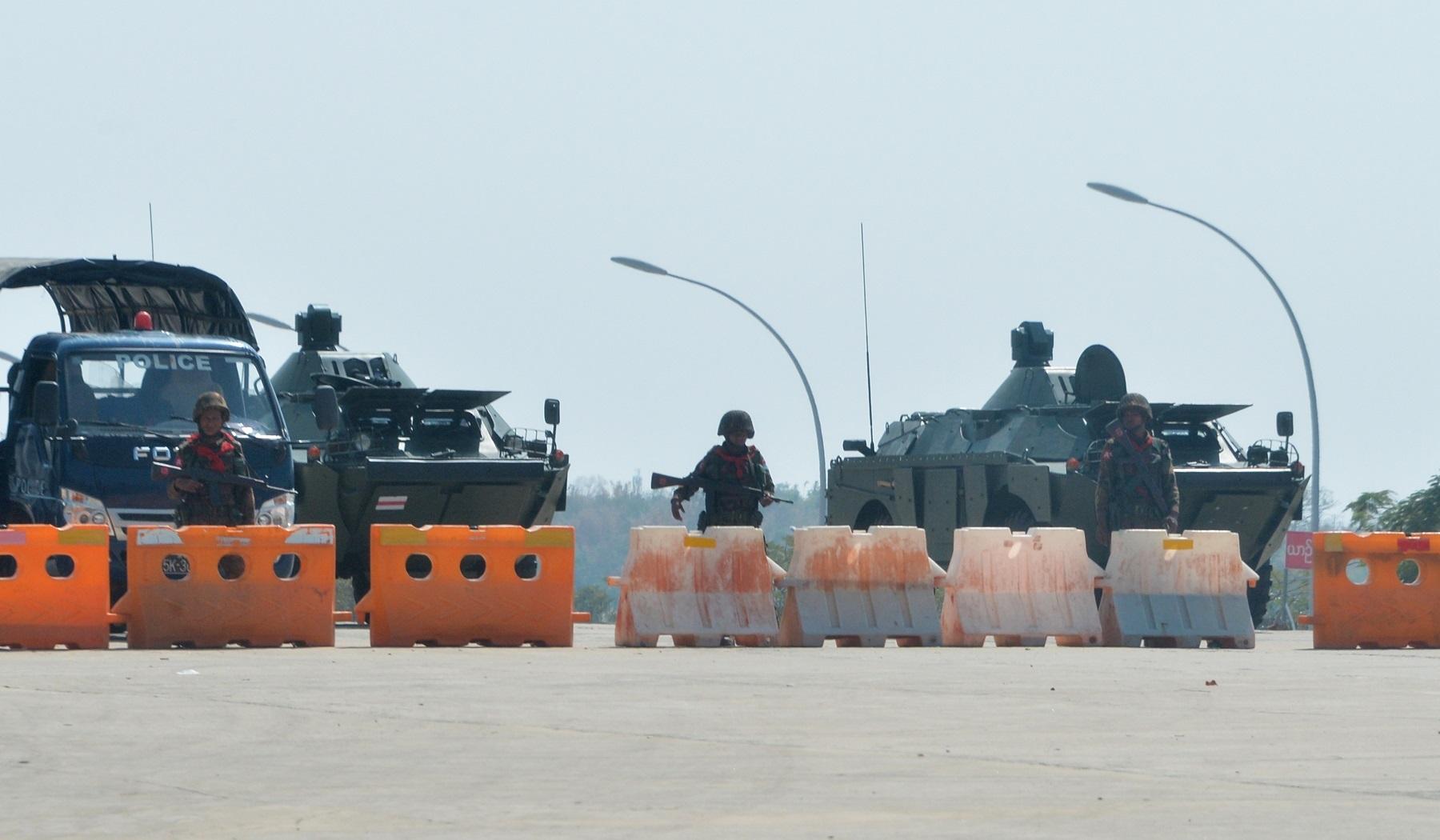Civil disobedience calls sprout in Myanmar after coup

Calls for a civil disobedience campaign in Myanmar were gathering pace on Wednesday as the United States formally declared the military's takeover a coup and vowed further penalties for the generals behind the putsch.
Myanmar was plunged back into direct military rule when soldiers detained Aung San Suu Kyi and other civilian leaders in a series of dawn raids on Monday, ending the country's brief experiment with democracy.
Suu Kyi, who has not been seen in public since the coup, won a huge landslide with her National League for Democracy (NLD) last November but the military — whose favored parties received a drubbing — declared the polls were fraudulent.
With soldiers back on the streets of major cities, the takeover has not been met by any major protests.
But signs of public anger and plans to resist have begun to surface, especially online.
The clatter of pots and pans — and the honking of car horns — rang out across the country's biggest city Yangon on Tuesday evening after calls for protest went out on social media.
Activists also launched a "Civil Disobedience Movement" Facebook group to declare opposition and share ideas. By Wednesday morning, some 24 hours after its launch, it had nearly 150,000 followers.
Army chief Min Aung Hlaing appointed himself head of a new cabinet stacked with former and current generals, justifying his coup on Tuesday as the "inevitable" result of civilian leaders failure to heed the army's fraud warnings.
The military declared a one-year state of emergency and said it would hold new elections once their allegations of voter irregularities were addressed and investigated.
The move stunned Myanmar, a country left impoverished by decades of junta misrule before it began taking steps towards a more democratic and civilian-led government ten years ago.
Military's deadly legacy
Doctors and nurses were among professionals making early declarations of their intent to go on strike.
"We will only follow and obey the orders from our democratically elected government," a statement from medics posted overnight on the Civil Disobedience Movement page read.
But protesting against Myanmar's military is fraught with risk.
During junta rule, dissent was quashed with thousands of activists — including Suu Kyi — detained for years on end.
Censorship was pervasive and the military frequently deployed lethal force during periods of political turmoil, most notably during huge protests in 1988 and 2007.
On Wednesday morning the official Global New Light of Myanmar newspaper published a warning from the Ministry of Information against opposing the coup.
"Some of the media organizations and people are posting rumors on social media, releasing statements to occur riot and unstable situation," the English language statement read.
It called on people "not to make such moves and to cooperate with the government in accordance with existing laws."
International censure
The army's actions have been met with a growing chorus of international condemnation although the options are limited for those nations hoping Myanmar's generals might reverse course.
On Tuesday the State Department formally designated the takeover as a coup, meaning the US cannot assist the Myanmar government.
Any impact will be mainly symbolic, as almost all assistance goes to non-government entities and Myanmar's military was already under US sanctions over its brutal campaign against the Rohingya minority.
UN Secretary-General Antonio Guterres, the European Union and several other nations have also spoken out.
The UN Security Council held an emergency meeting Tuesday but failed to agree on a statement condemning the coup.
To be adopted, it requires the support of China, which wields veto power as a permanent Security Council member and is Myanmar's main supporter at the UN.
"China and Russia have asked for more time," said a diplomat requesting anonymity at the end of the meeting, which lasted just over two hours.
Both countries repeatedly shielded Myanmar from censure at the UN over the military's crackdown on the Rohingya, a campaign that UN investigators said amounted to genocide.
The coup is the first major foreign policy test for President Joe Biden, who has vowed to stand up for wobbly democracies and defend human rights.
In a forceful statement on Monday he said the US would consider imposing fresh sanctions on Myanmar.
But Washington is also wary of pushing Myanmar further into China's orbit.
"China is only too happy to step in with material and political support for the Burmese military as part of its ongoing effort to maximize its influence in Southeast Asia," said Daniel Russel, from the Asia Society Policy Institute. — Agence France-Presse




